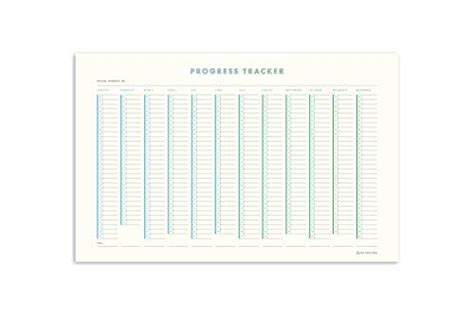Achieving our fitness aspirations and solidifying our financial futures are common goals, yet the path to success is often fraught with a familiar foe: waning motivation. We start with enthusiasm, fueled by new year resolutions or sudden inspiration, only to find our resolve crumbling as the initial spark fades. The secret isn’t to constantly chase motivation, but to cultivate something more resilient: discipline. This article will guide you through practical strategies and mindset shifts to build unwavering discipline, ensuring consistent progress towards your fitness and finance goals, regardless of how you feel on any given day.
Understanding the Discipline vs. Motivation Myth
Many believe that sustained effort requires sustained motivation. However, motivation is a fickle emotion, a temporary surge of energy that ebbs and flows. Discipline, on the other hand, is a choice, a commitment to action regardless of mood. It’s the engine that keeps you going when motivation takes a vacation. Shifting your focus from waiting for motivation to building systems of discipline is the first crucial step.
Think of motivation as the wind that fills your sails occasionally; discipline is the oar that keeps you moving forward, even when there’s no wind. Embracing this distinction empowers you to take control, understanding that your actions don’t need to be dictated by your fleeting emotions.

Foundation 1: Small, Consistent Steps
The most overwhelming goals become manageable when broken down into tiny, actionable steps. For fitness, this might mean starting with a 15-minute walk daily instead of aiming for an hour-long gym session. For finance, it could be reviewing your budget for 10 minutes each week or automating a $5 transfer to savings every payday. These micro-habits are easier to start and sustain, building momentum without relying on Herculean willpower.
The key is consistency over intensity. A small, consistent action performed daily or weekly is far more effective in building discipline than an intense effort that quickly burns out. Celebrate these small wins; they are the building blocks of lasting change.
Foundation 2: Building Unbreakable Routines and Environment
Routines remove the need for daily decision-making, which depletes willpower. Schedule your workouts like important appointments you wouldn’t miss. Set a specific time each week to review your finances. Make these activities non-negotiable parts of your day or week. Furthermore, optimize your environment to support your goals. Place gym clothes where you see them first thing in the morning, or keep healthy snacks readily available. Unsubscribe from marketing emails that tempt you to overspend, and set up automatic transfers to your savings accounts.

By making your desired actions the path of least resistance, you leverage the power of passive discipline. Your environment starts working for you, rather than against you, making it easier to stick to your commitments even when your mental energy is low.
Foundation 3: Tracking Progress and Accountability
Seeing your progress, no matter how incremental, is a powerful motivator for discipline. Keep a fitness journal, track your savings growth, or use apps to monitor your habits. Visualizing your journey reinforces the positive impact of your consistent efforts. Equally important is accountability. Share your goals with a trusted friend, family member, or join a community. Knowing someone is checking in on you or that you have a shared commitment can provide the extra push needed on challenging days.
Accountability can transform an internal struggle into an external commitment, making it harder to simply “skip” or “forget” your planned actions. Choose an accountability partner who genuinely supports your aspirations and isn’t afraid to offer gentle nudges.

Mindset Shifts for Long-Term Adherence
Discipline isn’t just about doing; it’s about being. Shift your identity to align with your goals. Instead of saying, “I want to exercise,” say, “I am a person who exercises.” Instead of, “I need to save money,” say, “I am financially responsible.” This identity-based approach makes your actions a reflection of who you believe you are, rather than just tasks to be completed. Reframe challenges as opportunities for growth, not roadblocks. View setbacks as data points, not failures.
![[300+] Positive Quotes Wallpapers | Wallpapers.com](/images/aHR0cHM6Ly90czEubW0uYmluZy5uZXQvdGg/aWQ9T0lQLjNBVVRaeFpaVERYbTJFUEUteTF3a3dIYUU4JnBpZD0xNS4x.webp)
Embrace the discomfort that often accompanies growth. True discipline blossoms when you push past immediate gratification for long-term rewards. Your future self will thank you for the disciplined choices you make today.
Overcoming Setbacks and Maintaining Momentum
No one is perfectly disciplined all the time. There will be days you miss a workout, overspend, or feel completely drained. The key to discipline isn’t avoiding setbacks, but how you respond to them. Don’t let a slip become a freefall. Acknowledge it, learn from it, and get back on track immediately. Don’t fall into the trap of “all or nothing” thinking. One missed day doesn’t erase weeks of effort.
Practice self-compassion. Understand that building discipline is a marathon, not a sprint. Re-evaluate your strategies if necessary, but never give up on the underlying commitment. Consistency, even when imperfect, is what truly builds discipline over time.

Building discipline for your fitness and finance goals is a journey of continuous improvement, not a destination reached overnight. By understanding the distinction between motivation and discipline, starting with small consistent steps, establishing robust routines, tracking your progress, shifting your mindset, and learning to recover from setbacks, you can forge an unshakeable resolve. This discipline will serve as your steadfast companion, guiding you towards lasting health and financial security, long after the initial burst of motivation has gently faded.




